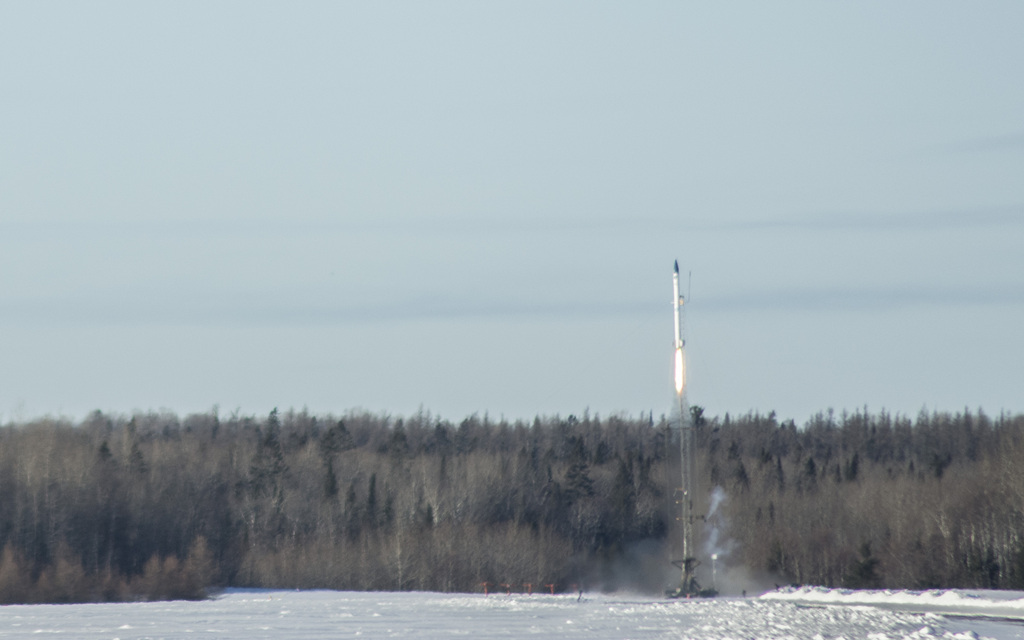Uncategorized
Maine company that hopes to become the Uber of space completes historic rocket launch – Bangor Daily News
http://bangordailynews.com/2021/01/31/news/aroostook/maine-company-that-hopes-to-become-the-uber-of-space-completes-historic-rocket-launch/

LIMESTONE, Maine — bluShift Aerospace’s small crew of about 10 made history Sunday when they sent the Stardust 1.0 rocket into the sky, marking the world’s first commercial launch of a rocket powered by a bio-derived fuel and the first commercial rocket launch in Maine.
bluShift Aerospace’s plans to make history with the launch of the Stardust 1.0 were delayed by cloudy skies for the second time this month. When the rocket eventually takes off, it will mark the world’s first ever commercial launch of a rocket powered by a bio-derived fuel and the first commercial rocket launch in Maine.
The first launch attempt Sunday morning had to be delayed because it was too cold for the electronics to function properly in the rocket and they had to warm them up, bluShift CEO Sascha Deri said.
The temperature was 14 degrees below zero at about 6 a.m., he said.
“We know our battery packs are not usable under minus 10,” he said. “I didn’t even think this was going to be an issue, but I guess I didn’t know Aroostook County well enough.”


After this, the skies briefly became cloudy, but then cleared for a launch at roughly 10:30 a.m. Unfortunately the rocket did not leave the tower during this attempt, which Deri attributes to the main valve being under-pressurized and unable to open.
“It was a learning lesson. We wanted to save gas from being lost, but we shouldn’t have done it,” he said.
Another launch attempt, roughly an hour later, also resulted in the rocket not clearing the tower — caused by ignition fluid running out. Deri clarified that the ignition fluid is separate from the company’s proprietary bio-derived fuel.
The ignition fluid was refilled by 1:56 p.m. and the crew moved immediately to pressurizing and heating the system for launch. At that time, Deri said, “It’s looking very good, and I think we have a good chance. I hope we can say the third time’s the charm.”
By 3 p.m. the rocket was able to launch with no noticeable issues, with the payload parachute deploying in time for the materials to appear to safely reach the ground.
“The good news is we had a successful launch. The incredible news is it landed in such an easily accessible place,” Deri said. He also thanked the Bouchard family for locating the rocket on snowmobiles in such a short period of time.
“I feel incredibly lucky,” he said.


The launch was originally planned for Oct. 28, 2020, but was moved to November so the team could conduct additional tests they said were critical to the rocket’s performance. During this time, engineers discovered that the rocket’s design could be enhanced, and the launch was delayed a second time.
Enhancements included improvements to O-rings, extra heat shielding added to key areas across the rocket — particularly around the combustion chamber and within the telemetry area — telemetry improvements for datalink reliability and improvements to the launch trailer heat shielding so it can be reused.
In the next attempt, the crew was fully prepared to launch the Stardust on the morning of Jan. 15, but cloud cover blocked them from getting required Federal Aviation Administration approval. Originally scheduled for 8 a.m., the launch was later moved to 10 a.m., and the time was pushed back in increments all day until the team no longer had adequate daylight for the launch.
The FAA requires notification an hour before launch, then 15 minutes before and then one more just after the launch is complete.
The team needs 48 hours with cloud cover that is less than 50 percent of the flight ceiling, or 5,200 feet above sea level, in order for the launch to take place. The winds also need to be calm. And because the crew is based in Greater Brunswick, they need to determine the optimal weather window about three to four days ahead of time so they can drive to Limestone and prepare the rocket.
The Stardust is 20 feet tall, 14 inches in diameter, weighs about 650 pounds, and cost nearly $1 million to build.
In addition to making history, the team hopes this will open the doors to a relatively untapped market for academic and commercial payload launches.
Deri said on Jan. 15 that the company learned through attending numerous conferences and interviewing dozens of customers that there are no small, dedicated rocket launches equipped to carry one to three payloads.
On Jan. 31, the rocket launched with three payloads on board — a scientific payload from Falmouth High School, aerospace materials from Kellogg Research Lab in New Hampshire and a Rocket Rock Bumbler and Stroopwafel from Rocket Insights in Massachusetts.
The CEO said at the first launch that, in a way, companies like SpaceX and United Launch Alliance could be likened to freight trains and that a company like Rocket Lab is similar to a bus line.
“And we’re going to be the Uber of space,” Deri said.

